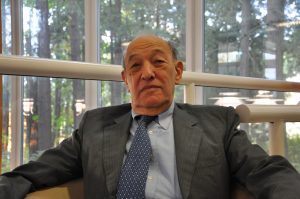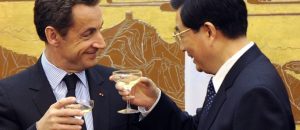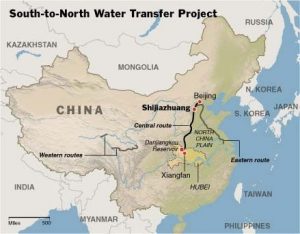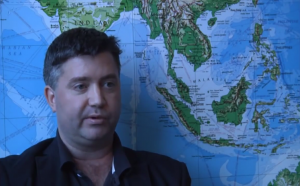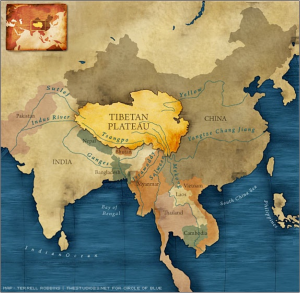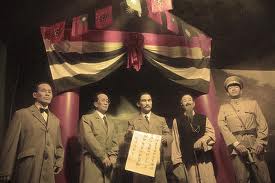Interview with Ezra Vogel on Deng Xiaoping and Chinese Politics (Part 2/3)
Memo #121 – In part two of our interview with Ezra Vogel, he discusses the domestic politics of Deng’s career. Professor Vogel outlines the forces that shaped Deng as a leader, from his experiences with senior Chinese communists in Europe in the 1920s to Deng’s own “years in the wilderness” in the Cultural Revolution. Loyalty for Deng Xiaoping was based on comradeship over personal friendship – his primary loyalty was to the movement and to its supreme leader, Mao Zedong.
Interview with Ezra Vogel on Writing Deng Xiaoping’s Biography (Part 1/3)
Memo #119 – Ezra Vogel is a commanding figure in scholarship on East Asia and American-East Asian relations. His major books include Canton Under Communism, Japan as Number One, and Living with China. Henry Ford II Research Professor of the Social Sciences, Emeritus at Harvard University, he has published a monumental biography, Deng Xiaoping and the Transformation of China.
At G20: China a Balancer Between US and EU
Memo #116 – The G20 Summit in Cannes, from November 3 to 4, 2011, is possibly the last chance to prevent the beginning of a serious global financial meltdown. It’s a critical moment of confrontation between different blueprints on the future of global economic governance.
Polluted Water Challenges China’s Engineering Efforts
Memo #114 – Water is central to China’s environmental challenges. While not water-short overall, the geographic and temporal variations in China’s precipitation are extreme. Some areas suffer from dangerously lower per capita fresh water availability. Water conservation innovation does happen, but shortages usually elicit familiar engineering responses such as dams and diversions. Most notable is the South-North Water Transfer Project (SNWTP), which aims to take nearly 45 cubic kilometres (45 billion cubic metres) of water annually from the water rich Yangtze River basin to water scarce regions around the Yellow River basin in the north. The diversion would essentially replace the Yellow River’s total annual runoff of 30 billion cubic metres.
Dramatic Reforms in Burma (Video Interview with Nelson Rand)
Memo #113 – Dramatic changes appear to be underway in Burma since a quasi-civilian government took office in March 2011.
Although there are many uncertainties over the extent and sincerity of the new government’s initiatives for reforms, which have been both political and economic, one thing is clear: the reforms that have been initiated in Burma since March 2011 have been the most significant in over half a century. The country is at a critical juncture, and while it is still too early to tell just how developments will play out, for the first time in years there is reason to be optimistic about Burma’s political direction.
Water Conservation on the Tibetan Plateau
Memo #112 – China’s most pressing water issues may not be its maritime claims in the South China Sea but matters of freshwater security. For many analysts, China’s domestic and international water security begins and ends with waters of the Tibetan Plateau. And the picture they paint is, to say the least, bleak. Unfortunately this ignores many grassroots and local water conservation efforts in western China.
China’s Plans to Divert Water on the Tibetan Plateau
Memo #110 – The prospect of China controlling the taps of Asia’s main rivers is a subject of intense debate. Downstream countries are understandably concerned. But Chinese experts say it is the Chinese who should be most worried about its government’s plans.
100 Years after the Xinhai Revolution
Memo #108 (Theme: 100 Years after the Xinhai Revolution) Today, on October 10, 2011, the world is commemorating the centennial of the Xinhai Revolution, which ended the Qing Dynasty and founded a republican China. In a series of Memos we examined the impact that the revolution and its aftermath have had on China and its […]
One Hundred Years of Waiting
Memo #107 – For many Chinese, the Xinhai Revolution will be recalled on October 10 as modern China’s founding moment a century ago. The revolution ended an imperial system whose foundations go back millennia. In those terms, 1911 was a great success. But suppose that, rather than look backward, we look ahead. What if we measured the republican revolution by the republic it ushered in, and not the empire it ushered out?
U.S. Arms Sales to Taiwan a Sore Point in U.S.-China Relations
Memo #105 – The Obama administration’s decision to sell arms to Taiwan clouds bilateral relations with China. The timing is not ideal. Global economic recovery is volatile and tensions are increasing in the South China Sea. Next year, there will be a leadership transition in China and the U.S. will hold its presidential election.
